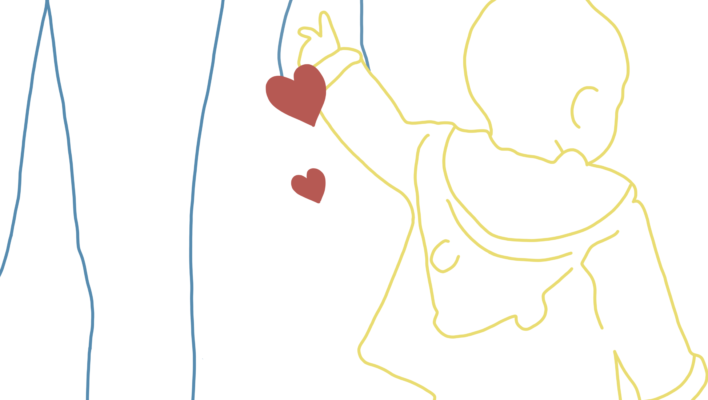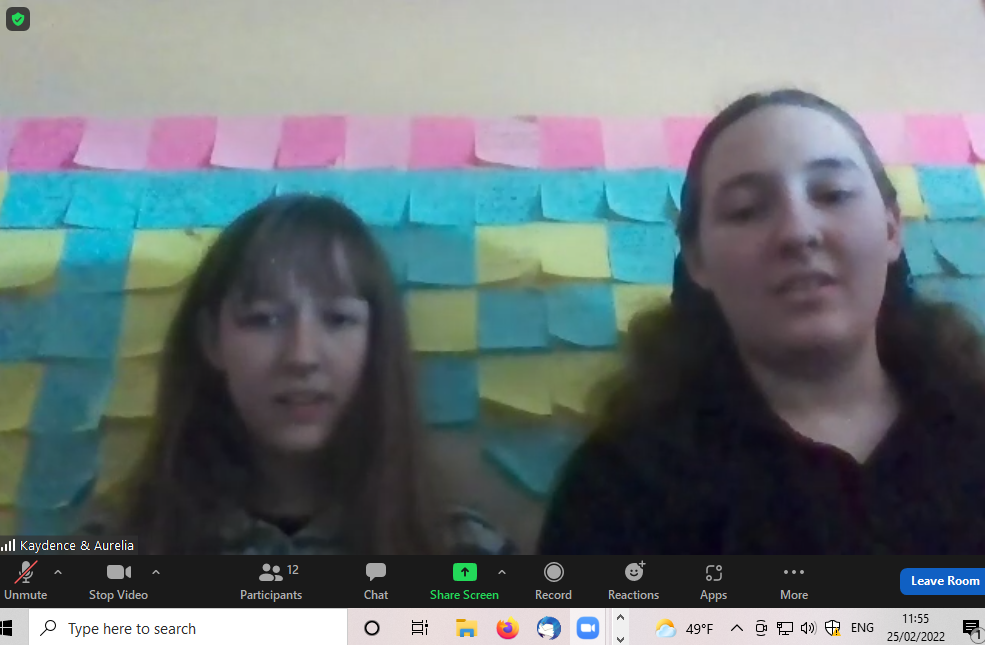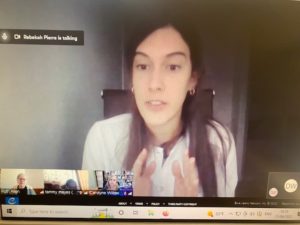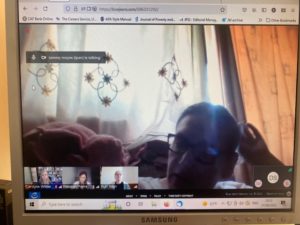Child Participation in Care Proceedings

Design created by students from the University of the Arts London
“Young people are often completely at the mercy of the decisions made by adults. The ways that child participation is built into the current system in the UK is a one-size-fits-all box ticking exercise. This is often infuriating and damaging to children — to their trust in those who profess to care, to their self-esteem, and to their identity as an individual with rights who is worthy of respect.”
This statement, prepared by Kaydence Drayak on behalf of Teen Advocacy and ATD Fourth World, was featured in a webinar hosted by the Council of Europe on 21 June 2022. Organised by the Civil Society Committee on the Rights of the Child, the webinar was entitled: “Determining and Evaluating the Best Interests and Rights of Children in Parental Separation and Care Proceedings“.

Both Aurelia (left) and Kaydence (right) prepared statements for this webinar.
During the session, specialists and professionals from across Europe exchanged views and knowledge on how to improve the rights of children and adolescent experiencing the care system. ATD Fourth World volunteer Frankie Webb-Huseyin writes below about her experience attending one of six parallel workshops.
___
How to implement participation of children expressing their views
The workshop that I was fortunate to attend highlighted the importance of ensuring that children and adolescents’ opinions and views are listened to when regarding what would occur during separation of/from parents. We discussed the value of avoiding jargon and using child-friendly language to ensure that the children involved understand each part of the proceedings so that their autonomy is respected. Aurelia Drayak’s statement (read by ATD Fourth World member Iris Schukraft) stressed the importance of listening to what children have to say and then implementing what they want.
Ensure the right conditions for participation
She emphasised how important it is to ensure the right conditions are available for the participation of adolescents to take place. Many children consulted said that the biggest obstacle to participation for them is transportation. This is due to many not being able to drive and public transport networks being too expensive to use to travel to and from meetings. They also mentioned the difficulty of having to attend meetings during school time and experiencing feelings of stigmatisation when others knew that they had meetings with professionals from the care system.
Institute the right to be accompanied
Aurelia also described the further disadvantage that young carers face as they either have to find the time to attend participatory meetings whilst looking after a relative or need someone else who can assist their relative, which is difficult to organise. To rectify this, they recommend that being accompanied to these meetings be instituted as a right. The added support they will gain by having a friend or family member join them will make it slightly easier for them to speak about hurtful experiences. The children and adolescents that were consulted also suggested to allow the opportunity to be part of a peer group so that they can unpack the systematic injustices they have faced while benefitting from the support of others in similar positions.
Overall, the workshop highlighted the importance of listening to the voice of children and adolescents to ensure that they can actively participate in expressing their views, and of ensuring said views can be implemented within the professional setting.
– By Frankie Webb-Huseyin
Rights and wellbeing of older children and adolescents
Another workshop in the same webinar focused on the rights and wellbeing of older children and adolescents experiencing the care system. In this workshop, Kaydence Drayak said:
“Many young people are so hurt by the system that they can’t speak, they can’t show up and fight for themselves. We need to support them by allowing them to have a friend or relative come with them. For children to be able to speak out about violations of their rights, it’s important for them to be part of peer groups where they can offer one another mutual support, and can go beyond their individual circumstances to try to impact systemic injustices against other children like themselves.”

Another speaker, Rebekah Pierre, author of Free Loaves on Fridays: The Care System as Told by People Who Actually Get It, spoke about serious harm suffered by older children in care. In particular, she criticised current policies that place 16 to 18-year-olds in unregulated accommodations such as hostels. She shared a diary entry of a teenage girl in this situation:
“Intimidated by the angry mob outside the entrance, leering, laughing. The loneliness is astounding. If I needed help, I could shout to no one.”
ATD activist Tammy Mayes reacted: “It’s very hard on a child at 16 even to have to make decisions on their own. If a parent, rather than the care system, put a child in that situation, they would be criminals. ”

ATD Fourth World International made several contributions to the session. To read Kaydence Drayak’s submission, please click here. To download ATD Fourth World International’s submission, please click here.

